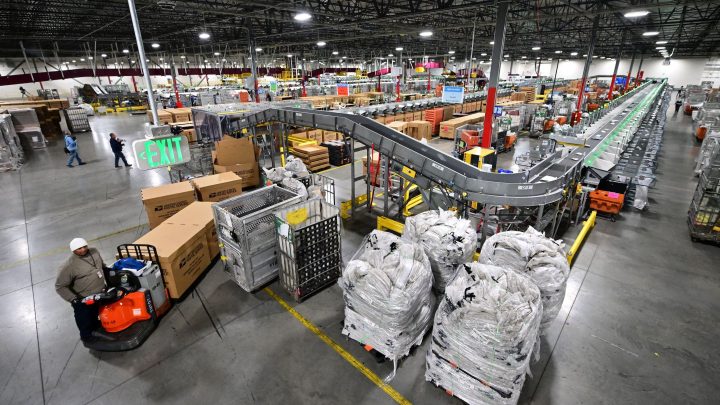
Faced with an onslaught of returns, retailers are telling shoppers: “Just keep it.”
Faced with an onslaught of returns, retailers are telling shoppers: “Just keep it.”

On this first day of December, we are very much in the thick of the holiday shopping season.
A lot of that shopping is happening online. And with online shopping often comes the expectation of free returns if the item you ordered isn’t quite right.
But there’s now a decent chance that if you want to return an item, the place you bought it from might just say, “keep it.”
As Reuters first reported this week, “return-less refunds” or “keep it” return policies have now been adopted by 59% of major retailers. That data’s from a survey by the return logistics company goTRG.
These policies make economic sense for retailers, but they might not want to tell you about them.
A couple years ago, Mark Cohen, director of retail studies at Columbia Business School, ordered a fabric steamer from Target.
“I saw it online, it was exactly what I was looking for,” he said.
But when a package showed up at his apartment, it was very much not a fabric steamer. It was a king sized comforter. He called Target, which apologized for the mix up, and told him to keep it.
They said, “It would be overly burdensome for us to take it back,” Cohen said.
That’s because taking stuff back is way more expensive for retailers than sending it out, he said.
Sean Burke, a partner at Clarkston Consulting, said shipping costs are just the tip of the iceberg.
“Unpacking it and reviewing it and seeing if it can be resold. And if it can be resold, going in and restocking it on their shelves,” Burke said.
All that work requires time, money, and staff.
“And so retailers have to sit there and say, ‘Is it worth it?’,” said Amena Ali, CEO of the returns management company Optoro. She said the answer is often no.
That was especially true a couple years ago, when freight costs skyrocketed, said Zac Rogers, who teaches supply chain management at Colorado State.
“And now, freight’s cheap, but it was kind of nice to not have to deal with it,” he said. That’s why a lot of retailers have kept their “keep it” return policies.
But, these can also be abused by shoppers who resell what they supposedly want to return, said Clarkston Consulting’s Sean Burke.
“And so that’s why you generally don’t see people necessarily publicizing that they do this,” he said.
To deal with fraud, Burke said, online retailers use all the data they gather from us to find patterns.
“Hey, this Sean Burke guy, he’s done a lot of returns lately. They can start to pinpoint that maybe they shouldn’t allow me to do this anymore in the future,” he said.
But in most cases, Burke said, shoppers are gonna give away the returns they get stuck with. Or, in the case of Mark Cohen and his comforter, they’ll hold on to it for years.
“Eventually, it’s going to wind up in a Goodwill bin or a Salvation Army bin,” he said.
He just hasn’t gotten around to it yet.
There’s a lot happening in the world. Through it all, Marketplace is here for you.
You rely on Marketplace to break down the world’s events and tell you how it affects you in a fact-based, approachable way. We rely on your financial support to keep making that possible.
Your donation today powers the independent journalism that you rely on. For just $5/month, you can help sustain Marketplace so we can keep reporting on the things that matter to you.

















